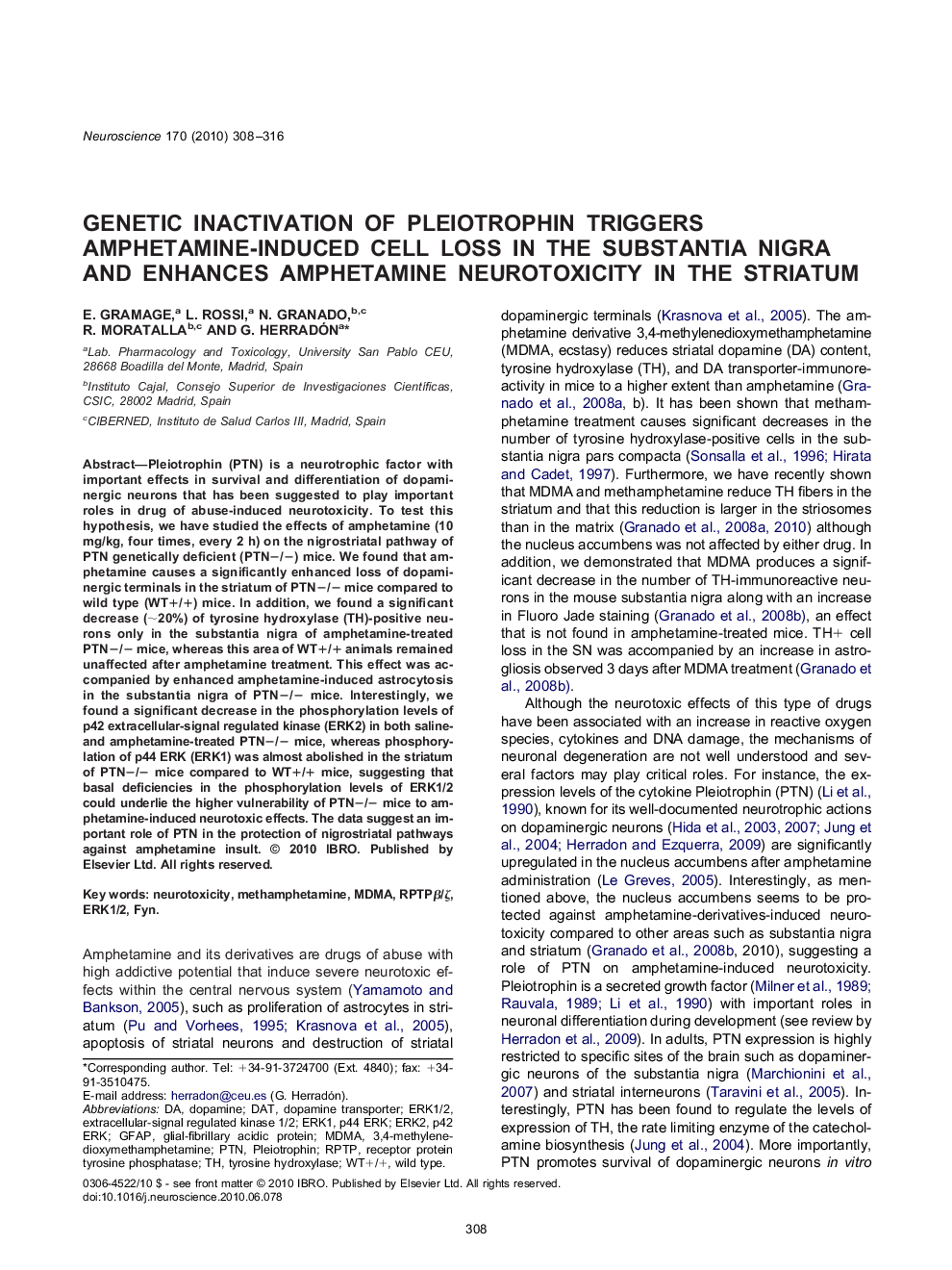| Article ID | Journal | Published Year | Pages | File Type |
|---|---|---|---|---|
| 6277242 | Neuroscience | 2010 | 9 Pages |
Pleiotrophin (PTN) is a neurotrophic factor with important effects in survival and differentiation of dopaminergic neurons that has been suggested to play important roles in drug of abuse-induced neurotoxicity. To test this hypothesis, we have studied the effects of amphetamine (10 mg/kg, four times, every 2 h) on the nigrostriatal pathway of PTN genetically deficient (PTNâ/â) mice. We found that amphetamine causes a significantly enhanced loss of dopaminergic terminals in the striatum of PTNâ/â mice compared to wild type (WT+/+) mice. In addition, we found a significant decrease (â¼20%) of tyrosine hydroxylase (TH)-positive neurons only in the substantia nigra of amphetamine-treated PTNâ/â mice, whereas this area of WT+/+ animals remained unaffected after amphetamine treatment. This effect was accompanied by enhanced amphetamine-induced astrocytosis in the substantia nigra of PTNâ/â mice. Interestingly, we found a significant decrease in the phosphorylation levels of p42 extracellular-signal regulated kinase (ERK2) in both saline- and amphetamine-treated PTNâ/â mice, whereas phosphorylation of p44 ERK (ERK1) was almost abolished in the striatum of PTNâ/â mice compared to WT+/+ mice, suggesting that basal deficiencies in the phosphorylation levels of ERK1/2 could underlie the higher vulnerability of PTNâ/â mice to amphetamine-induced neurotoxic effects. The data suggest an important role of PTN in the protection of nigrostriatal pathways against amphetamine insult.
